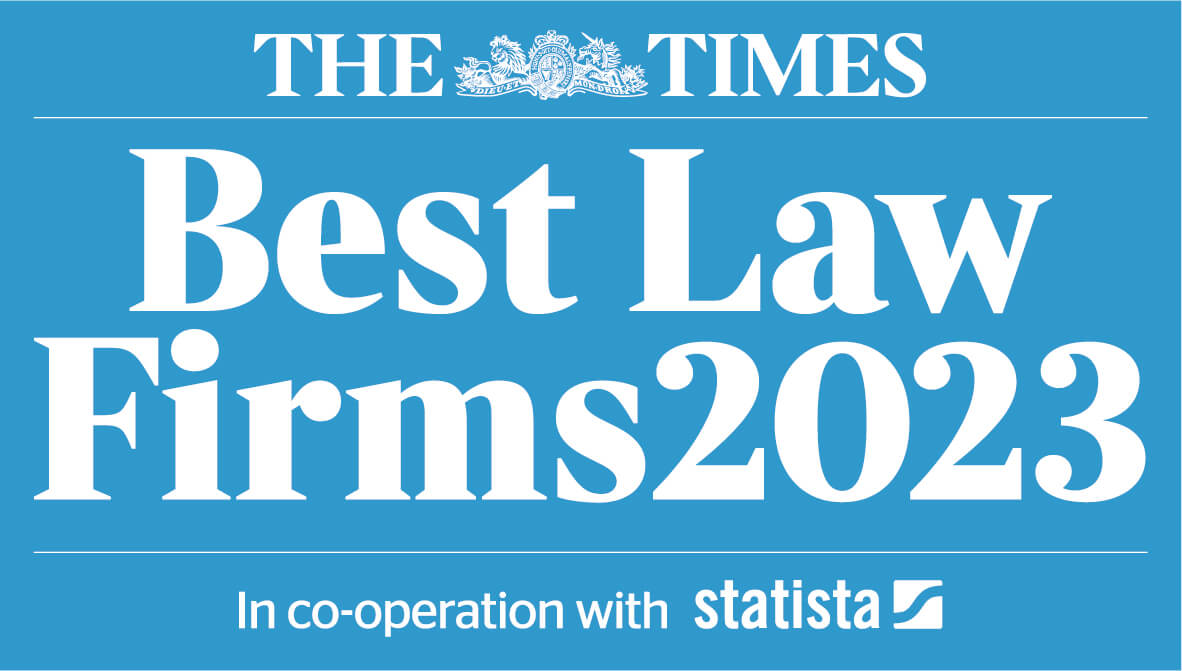I’m living with an abusive partner during lockdown, what are my options?
Table of Contents
On 23 March 2020 the Prime Minister, Boris Johnson, announced a national lockdown. The government implemented the most severe restrictions on public movement ever announced during peacetime, and the nation was told to “stay indoors”. But what about those for whom this instruction is not safe? What about people at risk of violence in their own home, who might be at increased risk from an abuser because of the lockdown?
What is domestic violence?
The Government updated its definition of domestic violence in 2012, and the changes were announced by then Deputy Prime Minister Nick Clegg.
The Crown Prosecution Services (“CPS”) defines domestic violence in the following terms:
Domestic abuse, or domestic violence, is defined across Government as any incident of controlling, coercive or threatening behaviour, violence or abuse between those aged 16 or over who are or have been intimate partners or family members, regardless of their gender or sexuality.
The definition can encompass a number of different behaviours and the government has provided a non-exhaustive list[1] of the types of abuse that this may include, stating that any of the following abuse would fall within the definition:
- psychological
- physical
- sexual
- financial
- emotional
How prevalent is domestic violence?
The ONS published figures relating to domestic violence in the UK most recently in November 2019.
An estimated 5.7% adults (2.4 million people) experienced domestic violence in the last year. The ONS figures show that:
“[T]he police recorded a total of 1,316,800 domestic abuse related incidence and crimes in the year ending March 2019”.
A total of 746,219 were recorded as domestic abuse related crimes[2].
What has been the effect of the lockdown?
On 27 April 2020 the BBC published a new article stating that:
“Calls to a national domestic abuse helpline rose by 49% and killings doubled weeks after lockdown”
The article confirmed that there were sixteen confirmed killings linked to domestic violence in the first three weeks after the lockdown was announced, representing an eleven year high. At the same time, a 35% increase in calls to “Men’s Advice Line” was reported.
On 2 May 2020 the BBC reported that the Government has pledged to spend £76 million to support vulnerable people at risk of domestic abuse. The majority of the funding will be made to community-based services, as well as the provision of safe accommodation for survivors of domestic violence.
What are my options?
The official government guidance states as follows:
“There is never an excuse for domestic abuse, no matter what the circumstances are. […] The household isolation instruction as a result of coronavirus does not apply if you need to leave your home to escape domestic abuse”[3].
However, the reality of the situation is unlikely to be this simple.
Firstly, it should be acknowledged that fleeing one’s home, and leaving everything behind to escape an abusive partner or family member is an incredibly hard step for a victim of abuse to take – especially when the abuse might be particularly coercive and controlling. The coronavirus pandemic has merely exacerbated an already incredible decision for an individual to take.
Secondly, there is a question of where victims can receive help – especially during the national lockdown when everyone has been told to “stay indoors”.
Reporting the perpetrator to the police
Domestic violence is a criminal offence. Any perpetrator may have committed one or more offences against you. You can report a crime to the police by dialling 101, or 999 in an emergency.
The perpetrator can be prosecuted and could face a prison sentence. However, understandably for many victims, the first priority will be to escape the violence rather than to punish the offender.
There have been some claims on social media and from journalists that if you need help during the lockdown, you can dial 999 and press 55 and then hang up. This isn’t entirely correct. If you need the help of the police but can’t talk, the advice is to dial 999 from a mobile, then 55 when prompted and don’t hang up. You will only be prompted to press 55 on a silent call from a mobile. You should try and cough, tap the handset or whisper to communicate on an emergency call if possible.[4]
It was reported on 1st May 2020 that the pharmacy Boots is to offer a safe space for victims of domestic violence. Those needing help can ask a staff member to use a private consultation room.
Seeking refuge with friends or family
For many victims, escaping to friends or family, at least at present, a viable option. We are only allowed to meet with one other household, in open spaces and at a minimum distance of 2 metres apart. However, if your life is in danger or you are at risk of serious harm breaking the lockdown to seek refuge with relatives or close friends might pose a lower risk than remaining put, even if you think this is disadvantaging your loved ones by putting them at risk of infection.
Your local council
Under homeless legislation, local councils are likely to owe a duty to a victim of domestic violence who are forced to leave their home.
It will consider, generally, if you are:
- homeless;
- eligible for assistance;
- in priority need;
- intentionally homeless.
The council has an obligation to assess anyone who presents to them as homeless. A person can be homeless if they have somewhere to live, but it would not be reasonable for them to remain there. Someone who has suffered or at risk of domestic violence will be treated as homeless. Any failure to treat someone suffering domestic violence at home as “homeless” would be unlawful. The Homelessness Code of Guidance states:
“It is not reasonable for a person to continue to occupy accommodation if it is probable that this will lead to domestic violence”
The same guidance states that councils should not approach the alleged perpetrator. If the council believes you to be homeless it has a number of duties and other discretionary powers to assist you.
In order to be eligible for assistance, the council will consider your immigration status and whether or not you have recourse to public funds. If you are a British Citizen you will automatically be eligible for assistance. If you have “settled status” (EU) or Leave to Remain (non-EU) it is likely that you will also be eligible for assistance. Even if you are not eligible for assistance the council has a lesser duty to provide you with advice about your situation and discretionary powers to help you further. In some instances, social services may also be required to assist you, depending on your needs.
The Homelessness Code of Guidance confirms that if you are vulnerable as a result of domestic violence or having to leave your home as a result of violence from another person you will be treated as someone who has a priority need for accommodation[5].
If the council believes you to be homeless, eligible for assistance and in priority need (before it finished its investigations into your homelessness) it will need to provide you with emergency accommodation, such as a hotel, hostel or B&B. For victims of domestic violence it may be appropriate for the council to place you in a refuge or similar segregated accommodation.
If you have left your home as a result of domestic violence you will not be “intentionally homeless”.
If each of the above factors is satisfied the council will have to provide you with alternative suitable temporary accommodation. This accommodation must be suitable for your needs and this can include not placing you in an area near your previous address.
If the council fails to assist you when you are fleeing domestic violence you should seek legal advice because it may be possible to challenge their decision.
Family law remedies
In some instances, it may be possible to seek a “non-molestation order” against the perpetrator. This could be, for example, to prevent the perpetrator from harassing you.
Alternatively or in addition, it may be possible to seek an “occupation order” excluding, for example, an abusive partner from the property.
Either of these orders could have a power of arrest attached to them, meaning that if the perpetrator breaches them they could be arrested.
The advantage to this course of action is that you may be able to remain in the family home, whilst excluding the abuser.
However, the availability of these remedies will be highly specific to your situation and there is not a guarantee that you would be able to obtain an order without the perpetrator having notice. These are court orders and as such must be made by the family court. The family court must be involved.
If you are considering taking action under the principles of family law you should always seek legal advice first from a family lawyer.
Charities
There are a number of organisations or charities that may be able to assist.
The below non-exhaustive list may be able to offer support in addition to any support you can receive from friends and family or from the Local Authority.
- Childline
- The National Domestic Abuse Helpline
- Life Fear Free Helpline
- Refuge
- Women’s Aid
- Men’s Advice Line
- National Lesbian, Gay, Bisexual and Trans Domestic Violence helpline
- Respect Phoneline
- Victim Support
Always remember that you can contact the police by dialling 101. In an emergency call 999.
[1] https://fullfact.org/crime/dial-999-silent-call-hang-up/
[2] Ibid, at 21.32; Article 6, Homelessness (Priority Need for Accommodation) (England) Order 2002.
[3] https://www.gov.uk/government/publications/coronavirus-covid-19-and-domestic-abuse/coronavirus-covid-19-support-for-victims-of-domestic-abuse
[4] https://www.gov.uk/government/news/new-definition-of-domestic-violence
[5]https://www.ons.gov.uk/peoplepopulationandcommunity/crimeandjustice/articles/domesticabuseprevalenceandtrendsenglandandwales/yearendingmarch2019
Contact us today
Call us 020 7485 8811
Email us Send us an email and we’ll get back to you
More from EdwardVIEW ALL
- 25.1.2021
Hackney Council ignore vulnerable resident’s request
Paranoid schizophrenic ignored by Hackney Council for four years wins legal battle over unsafe front door A man who suffers...
Read more - 25.1.2021
Teenage asylum seeker wins legal battle against Council...
Vulnerable teenage asylum seeker wins age case against the council which unlawfully assessed him A vulnerable teenager who sought asylum...
Read more - 2.12.2020
Education provision to age disputed migrants
The thorny issue of education provision to age disputed migrants There was an interesting article in The Guardian last week...
Read more - 16.4.2020
I am being threatened with eviction – can I...
Whether you occupy social housing or private rented accommodation, early intervention is absolutely key to staving off the threat of...
Read more - 22.10.2019
Lambeth Council failed homeless applicant
The Court of Appeal has quashed a council decision that said a young man with mental health problems and at...
Read more - 13.8.2019
Osbornes bring High Court challenge to secure accommodation
Edward Taylor has challenged Westminster City Council at the High Court after the local authority failed to meet its absolute...
Read more - 8.4.2019
Young asylum seekers – children being classified as adults
On BBC Newsnight, last night (5 April) reporters revealed young asylum seekers are being incorrectly classified by the Home office as...
Read more



